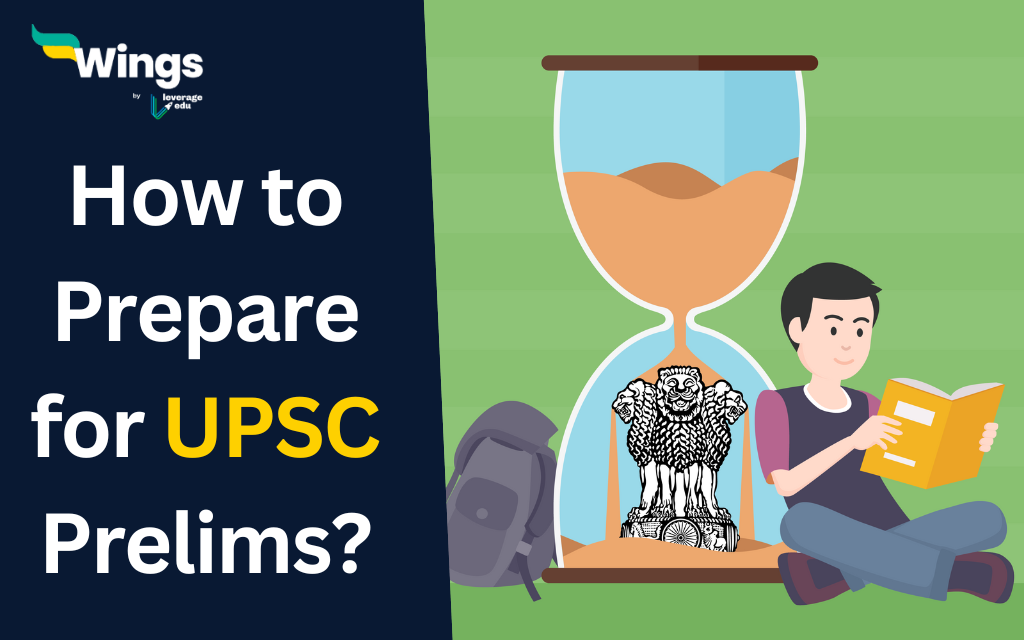Hello, students I am Professor Owl🦉, and in this blog, I will be sharing the UPSC prelims preparation strategy. Along with that, we will also look at some tips that are important to cover for the examination. UPSC is an important exam and requires full-time dedication, effort, and proper time management. The team of Leverage Edu has connected with Toppers and brought an exclusive study plan. Let’s see what it looks like in the below section.
Contents
📚 Best UPSC Prelims Preparation Books
Below are the best books to start your UPSC prelims preparation.
| History | India’s Struggle for Independence – Bipan ChandraIndian Art and Culture by Nitin SinghaniaNCERT XI (Ancient & Medieval)NCERT XII (Modern Indian History) |
| Geography | Certificate Physical Geography – G C Leong |
| Indian Polity | Indian Polity – M Laxmikanth |
| Economics | Indian Economy by Nitin Singhania |
| International Relations | NCERT XII (Contemporary World Politics)Current Affairs |
| CSAT | Verbal & Non-Verbal Reasoning – R S Aggarwal |
📝 UPSC Prelims Preparation Strategy – Month Wise
Below is the month-wise upsc prelims preparation stratergy.
First Month
- Start preparing the subjects you like the most.
- In cases of confusion, politics, and history can be your go-to options.
- Start with two subjects at a time.
- You must include current events, note preparation and subject-wise NCERT reading.
- Keep one reference book for the two subjects that you have chosen.
Pro Tip: History has three parts: ancient, medieval, and modern, so you can take 1.5 months to cover the whole syllabus. However, it is recommended that you do not miss medieval history.
Second Month
- Choose subjects like Geography and Economics.
- These two make a good combination, as studying them together will help to retain some points of economic geography and plans decided by the Government of India.
- They both are deadly combinations together, and only 30 days are required to completely go through them.
Third Month
- Now start with the Environmental Sciences and Art and Culture.
- Assign two hours every day to complete the optional subject preparation this month.
- Fourth Month
- For this month, pick up CSAT for your preparation.
- Take your time to go through this subject.
- CSAT Paper II is easy to cover and all your GS studies will be wasted if you fail this exam.
- Along with this, pick science and technology, along with question papers from previous years.
Also Read: How Many UPSC Aspirants Selected Every Year?
Fifth Month
- Revise the whole NCERT again and solve at least one question paper each day.
- You are advised to revise the history syllabus multiple times.
- Economics is one subject that requires revision for which 15 days would be enough.
Sixth Month
- This month, you only have to revise the current affairs.
- Revise your notes from previous months and complete them.
- Mainly focus on revising the conferences, indexes, events, new schemes by the government, and environment and science-related details.
- Make sure to remember all the new species of animals or plants and ancient relics and materials found that year.
Tip: By this time, you must have solved the 10 previous year’s papers. Your target should be current events and mock tests. You can exceed your study hours from 12 hours to 14 hours by now.
📑 Daily Study Plan of Tina Dabi ( AIR 1 2015 )
Below is the study plan of IAS Topper Tina Dabi, which she used to follow when she was into studies.
Related Blogs
| How to Prepare for UPSC 2024 at Home? | Backup Plan for UPSC Aspirants |
| UPSC Previous Year Question Papers For Last 10 Years | UPSC Book List |
| How Many Questions are there in UPSC Mains? | 🧑💻UPSC Preparation for Working People |
Mr. Owl – “I’ve answered all your queries with the utmost precision that I was capable of. Now, I’ll be taking my leave, but if you think I might have missed something, do check out the FAQ section or drop a comment. I always respond!”
FAQs
By planning everything in advance, you can easily prepare for UPSC.
Ideally, you should dedicate at least 1 year for your UPSC prepration, however, you can also clear the exams in 6 months by following the above time schedule.
There are two papers in UPSC prelims, General Studies Paper -1 and General Studies Paper-2 (CSAT Paper).
This was all about the “How to Prepare for UPSC Prelims”. For more such informative blogs, check out our UPSC Exams Section, or you can learn more about us by visiting our Indian exams page.


 One app for all your study abroad needs
One app for all your study abroad needs












 60,000+ students trusted us with their dreams. Take the first step today!
60,000+ students trusted us with their dreams. Take the first step today!